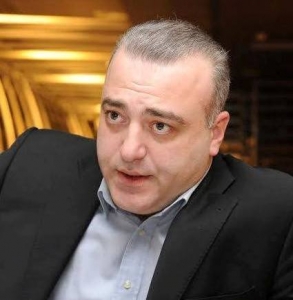
Ever since the second Minsk Agreement was reached, every single one of the parties involved has been on its best behavior – at least outwardly. Yet, even despite all the handshakes, signatures and sugarcoating, shooting in Ukraine does not cease. Shells continue to fall and Putin continues his display of childlike innocence – even going as far as to present a draft resolution in support of the agreement to the United Nations Security Council, which it has voted on unanimously.
The resolution was submitted on February 13. It is aimed at endorsing and executing the Minsk agreements. The document also expresses concern over the continuing violence in eastern Ukraine, and stresses the importance of resolving the conflict peacefully. The resolution calls for a “total ceasefire” and a “political solution” that respects the “sovereignty, independence and territorial integrity of Ukraine.”
Nevertheless, political and military analysts remain unconvinced. Irakli Gogava, a former field operations manager and a chief political consultant of Ukrainian ex-President Viktor Yushchenko, is extremely skeptical about the agreement, considering it meaningless:
“The Minsk Agreement is not being adhered to and will not be. Putin’s top priority is having a frozen conflict on Ukrainian territory, which will prevent it from joining NATO. That way Putin will also manage to avoid having to provide social care for the six million people comprising the population of Donbas region, forcing Kiev to take up this responsibility. His fighters’ top priority is controlling main transportation lines and hubs – namely, the Mariupol port, Debaltseve’s railway junction, and the road connecting Donetsk and Luhansk as well as both of their airports. They will definitely try to drive the Ukrainian army from the Donetsk and Luhansk administrative districts, and Moscow is going to help them with that. If they manage to take Debaltseve, we should expect a several-week-long pause that would allow both sides to recuperate and assemble forces. Then Russians will head out towards Mariupol, then to Kramatorsk and then to Slavyansk. It is necessary that new, harsher sanctions are imposed on Russia — sanctions that all its citizens will feel, such as a moratorium on granting them visas to Europe and Anglosphere countries.”
v-if="article.gallery" v-html="article.gallery"
(adsbygoogle = window.adsbygoogle || []).push({});